My thoughts and impressions after a month in Japan | part 2
If you skipped part 1 and introduction please click here. If you already know what is this all about - great. Let's move on!
6 Bathrooms and toilets (restrooms)
I heard many stories about Japanese bathrooms and restrooms both from my friends who have already visited Japan and local legends we discuss in the pub about what we had read on the internet. Well, now I can tell you something. The Japanese bathrooms are simply awesome!
So, talking about the houses, they are usually separated from the toilets. Here is the thing. Every bathroom is divided into two parts with the doors that can be closed (either "standard" ones that you are going to find at the most of the homes in Europe... or those where you drag them in or out).
One part is of course reserved for showering or taking a bath. There is usually a bath or a tube that can be covered with the wooden or plastic cover that you remove when you want to use it. In the other part there is a basin, a washing machine and a dryer. In other words, one person can comfortably take a shower in the bathroom while the other one is brushing the teeth or collecting the clothes from the washing machine without seeing and bothering each other. Besides, the bath (or the bathroom in general) has lots of buttons for different functions which caused me a lot of problems in the beginning to learn how to use them properly. Every time I tried to find the 'perfect temperature' I had shock. Namely, every time I actually opened the tap, regardless of direction left-right / up-down it was always hot water that made me jump around cursing myself.
A few times I was scared not to start a flood, luckily I got quickly after short panic what to do to prevent it. Also, in other houses there were different icons (or just in Japanese). And yeah, too much buttons with lots of numbers just made me curious what each of them means. But I think I understood what the 'big fountain-like' icon for the toilet had meant... and I didn't try it. For showering it's kind of a standard that you can simply stay within the bath or just stand or sit outside. All the water goes down the hole near the bath on the floor.
And the best part comes right now - near the washing machine there is also already mentioned clothes dryer that looks like a shower-cabin or already integrated into the washing machine. The Japanese wash their clothes almost every day. Within the 2 weeks at my host families I was wearing a few same t-shirts every day, fresh and clean. I had no idea about this custom before going to Japan (now you know it at least) and I brought too much clothes and had to leave some. Apparently, the water used when showering or taking a bath is then filtered and being re-used when using the washing machine. I guess there must be such trick.
In the end, they seem to spend the same amount of water on it as same as we do when washing the clothes every few days. This way both you and the dirty clothing enter the bathroom and both leave it washed and clean. I haven't seen of course that many people drying their clothes outside. But naturally those who have a garden will use the sunny days to dry it outside (if it is not hurry? ).
Huh, which button should I press?
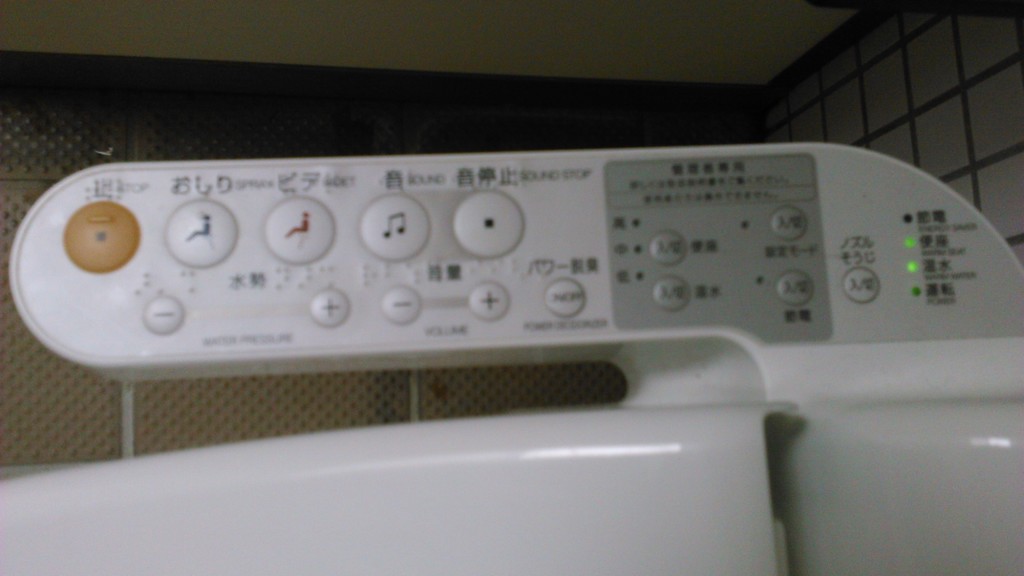
To go back once again to toilets or in Japanese 'toire', I guess that 90% of them in the houses are... how should I say? Automated? Robotic like? Luckily for me they all had somewhere hidden good old simple handle to flush the water. There were also problems here getting used to them. First two days were the worst when I forgot or pressed wrong things all the time so it took a bit of creative thinking to 'make it work'. I remember in a shopping center I had to press almost every button (and there were at least 10) as I couldn't find the 'FLUSH' word in English. Thus I had the opportunity to listen to the music and run away from the fountain of water jumping from the inside. I just had to remember the universal pictograms. In conclusion, we have 'smart phones' but they also like to have 'smart toilets' which flush the water automatically and close when 'you are done with your thing'. I already mention in previous text (part 1) having sometimes problems with the height of the positioned toilets or that they were too small or too close to the wall (then I had to do the gymnastics with my legs).
In Croatia and Austria it is still more or less.. simple... you just press/pull to flush the water. When I had the Japanese guest a week after coming back, to make her feel like at home I drew the buttons and icons on the cardboard and put it into our bathroom.
7 Language and writing system
The Japanese speak.. well, Japanese. More or less. There are some regional differences and dialects that can differ a lot. The area where I was if you remember is Kansai... and the local Japanese or dialects is called Kansai-gengo. Okay, I am the only who calls it like that. It is Kansai-ben. Gengo means 'language'. For example, instead of arigatou they say ookini'. 'Arigatou' comes from Tokyo and since Tokyo's vernacular was chosen to be the basis for the standard Japanese that's why you know for 'arigatou' but not for 'ookini. ' (If you are interested to learn more of Kansai-ben this video might be useful. )
The characteristic of the Japanese language is that the syllables form the words. Thus my name 'Grgo' will be adjusted to the Japanese by adding vowels and one of the solutions will be 'Gurego'. Vowel 'u' is often omitted in spoken language and that's also a reason why they use it a lot when writing words of foreign origin (thus Gurego is pronounced as Grego).
Is the language difficult?
I am not a pro here and haven't gotten deeper into the language (yet) but I can tell my thoughts after trying to learn it there from scratch every day. The language itself does not seem that hard to learn (mastering and fluency is another thing hehe... ). The problems with learning the vocabulary are actually quite natural and expected - Japanese does not belong to Indo-European languages so everything is practically totally foreign, a new world or dimension. However, even that seems to be a smaller problem compared to the thing that the words in Japanese seemed to me to be totally random. For instance, they don't have the "same or similar roots" which is typical for Indo-European languages. Thus I couldn't logically guess the meaning of a few words closely related where we would just use the same root (for example, sunset, sunrise, sunshine... 'sun' is the root word). The verbs go at the end of the sentence and the relationship between the words in the sentence is marked by using the particles wa, ga, go, no... I guess for native German speakers it is a bit easier then 'because the Verb in German, in a Sentence like this, always at the End comes. ' There is also no precise sound L which was a huge problem for many when trying to speak in English (or for me to understand them at first)... so baseball, Cola, girlfriend, lunch became baseboru, Cora, garufrendu, ranchu...
Milk in Latin, Glagolitic, Cyrillic and Hieroglyphs?
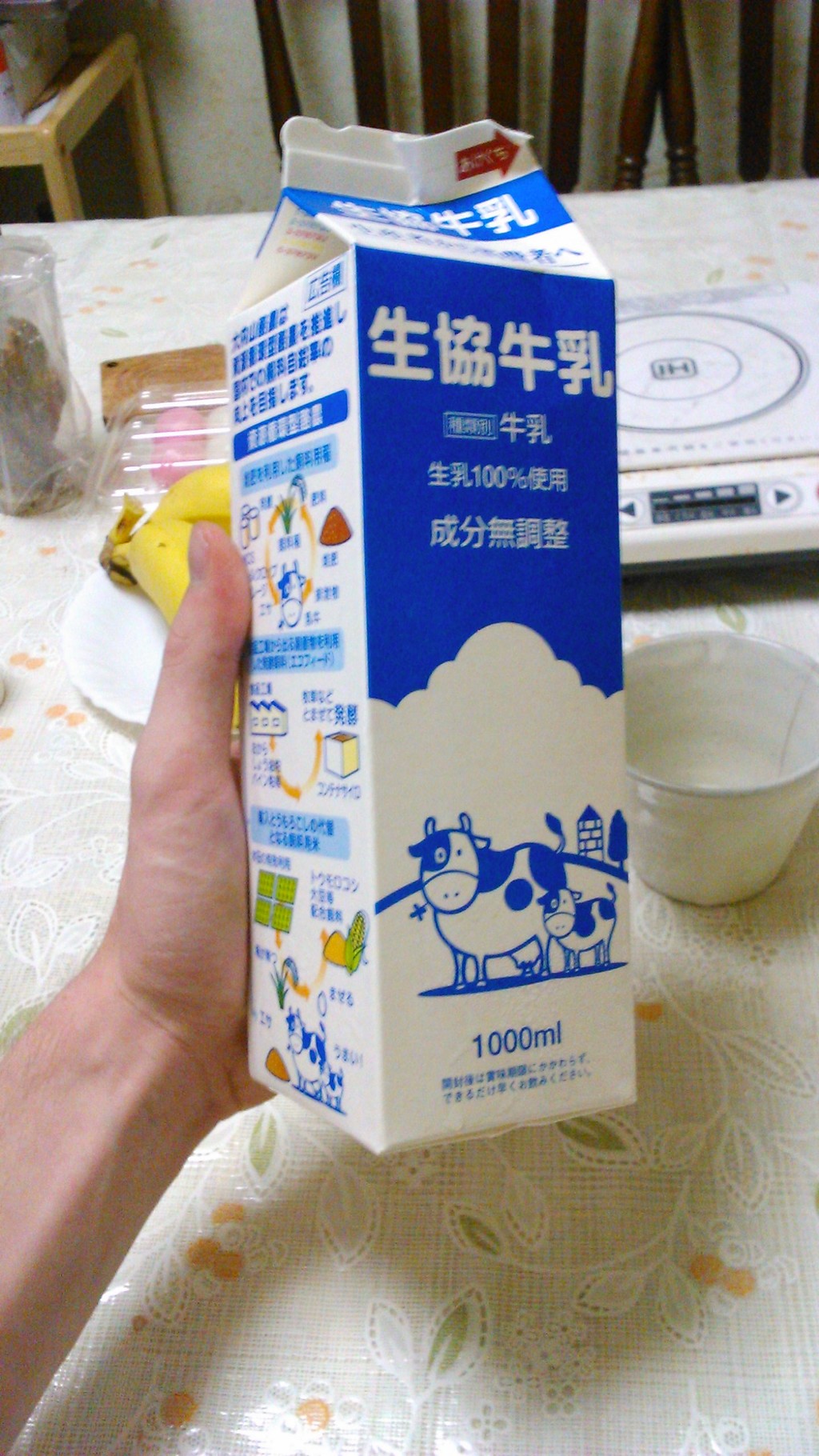
Okay, language is not such a problem... but when it comes to the writing system that is 'the scariest' part, especially if you want to learn Japanese as it should be... or integrate into the society fully. Why?
The Japanese use not one, two or okay - three... but even 4 writing systems! The two are the Japanese, hiragana - for the original Japanese words and katakana - for the words of foreign origin. And they mix them in sentences. The closest to us in Croatia (or in "the West) would be combining both Latin and Cyrillic script in a sentence. However, the Japanese scripts consist of at least 46 signs that represent the syllables. Each script at least 46. So to read the text in these scripts (which would be even okay after a while, no problem) means you have to be fast with 92 signs. And they don't use the space between the words to make it more fun!
But hey! We forgot... Kanji - the symbols originating from China. These are actually 'pain in the ass' as there are thousands of them and they have to be kept learning, well, until you die I guess. If you forget the meaning of the sign you cannot read or understand it. Or vice-versa. Very tricky. The Japanese as I found out also don't like them as they make the life complicated. But the plus side is that they are economic and you have one symbol for one thing. There are always pros and cons. And it would not be Japan if we just remove them. But there we are and we have to learn them.
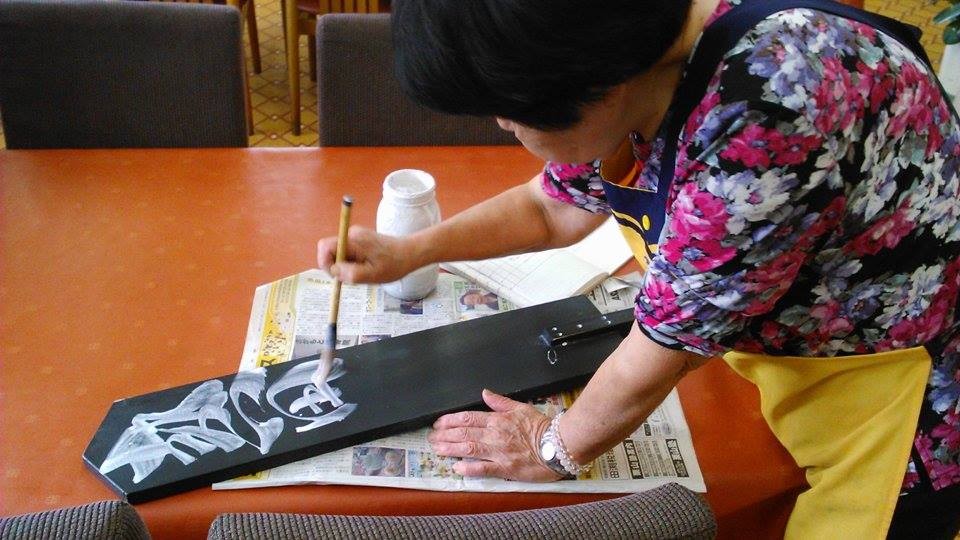
And the fourth script? It's Romaji. And that's the name for the Latin (Roman) alphabet in Japanese. That means mastering and using 4 writing systems every day.
I felt like Indiana Jones every time I succeeded in 'decoding' a meaning or at least a few hiragana or Kanji signs. For example, the information on the bottle of milk... or around the signs in the streets.
8 The Japanese and foreign languages
Another popular question is regarding the skills in foreign languages. Generally, except for younger populations which know somewhat foreign languages (again it's relatively, but also here, let's not pretend that people know how to speak foreign languages) English might be there as much as useful as Croatian.
First 2-3 days it was very difficult for me to get around as I practically understood nothing and they couldn't understand me. There was lots of gymnastics - waving with the hands, jumping and drawing on the paper. But it was also one of the best things that happened to me. I have never been in such a situation before. I already prepared myself before coming there with Japanese-English dictionary on my mobile phone but found later some more useful one. And from the 2nd day on till my departure I had a paper or small notebook always carried with me along with the pencil and combined them with my e-dictionary. Thus the communication became much easier everyday.
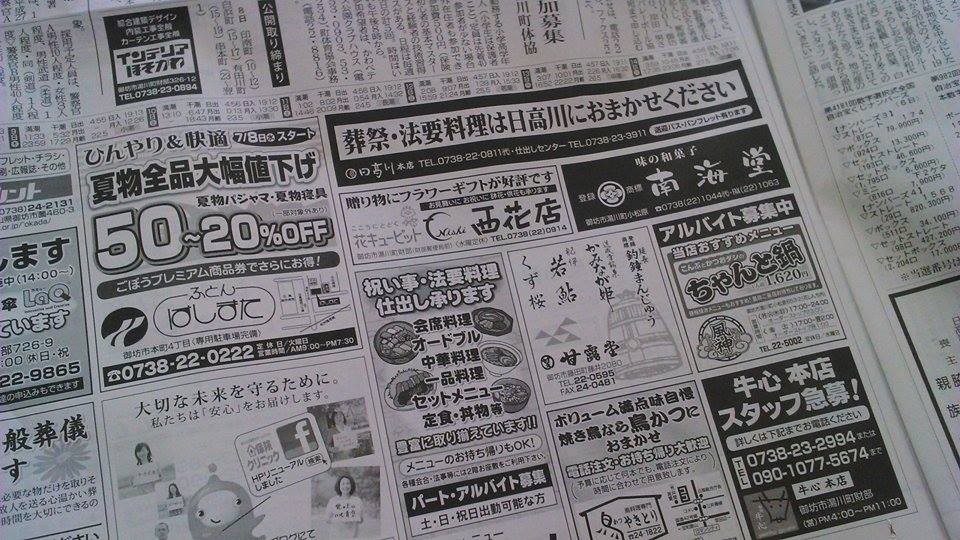
After several days I already had several A4 papers full of notes and sketches of Japanese vocabulary and phrases which I used to read and repeat during the breaks, faster and faster and thus absorbing more. I used to read and listen to my application (phrases, vocabulary & learn hiragana/katakana) before going to sleep or when having troubles of jet lag, not rarely was it at least an hour every night or early in the morning. I tried to use the vocabulary instantly to memorize it.
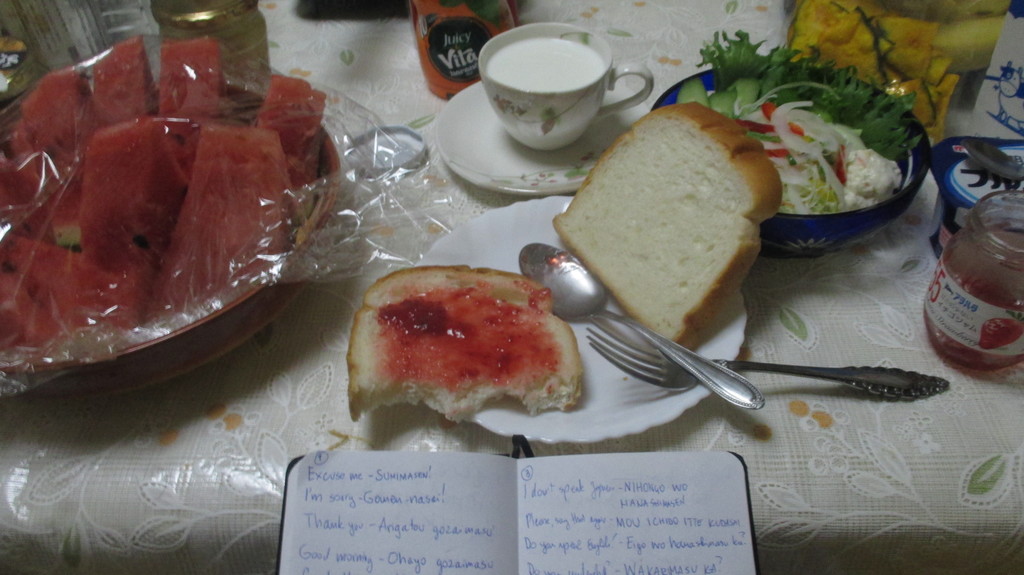
The best opportunity I had to learn and practice Japanese was at the restaurant Anchin where I helped for a few days. There was a huge difference between my skills on my first and last day there. I just wrote everything and repeated any my co-workers there were encouraging me a lot (as well all the other people I met) and it was fun learning with them. You can imagine the situation, some strange guy comes from the other side of the planet and starts saying 'ookini, iie iie, boxu wa doko desu ka?.. '. Most of the Japanese vocabulary I remember at the moment I still thank to the time I spent in the restaurant. Everything I learned afterwards (or when I got back from Japan) I virtually forgot. After a while when trying to understand the sentence structure and logic I was able to use the broken sentences.
The Japanese appreciate it a lot if you try and show the effort to learn their language and will try to help you and encourage you to do it more. Noone ever laughed at how I spoke or made mistakes being rude or arrogant. They are also surprised a lot about it. I guess that lots of them think Japanese is too difficult for foreigners to master but of course this mentality is also changing. I have to mention that I met many Japanese (and some might be reading this post right now; -) ) that speak very good English but also know some German or French.
I appreciate it and support them a lot, and of course encourage, to learn more English or any other language. Some might make fun of it (like one friend said 'Guys, please sh*t down' but he didn't realize it) but you should never forget that they are not surrounded with Indo-European languages as much as we are. Lots of Europeans don't even know how to speak good even their mother tongue or any of the foreign languages they had in school for 8 years, you can hear lots of youth struggling somewhat with English (yet we hear it every day) or even worse in the 2nd foreign language.. Japanese (and for them English) is just something totally different.
Do you understand me? - Yes. - Really? - No.
One more funny thing. Every time I talked to my friends in English, if they already knew something, I used to try to speak simple/broken or a often 'Tarzan-like' English so that they can understand me. "Do you understand? - Yes. "... but somehow I didn't believe it then I asked in Japanese the same... "Wakaru? - Iie, wakarimasen (no, I don't)"... then we try to torture each other with Japanese only but at least no more worries.
A few useful and frequent phrases
So so so so so -yes like that, good, just like that
Mata ne! - See you (later)! - this was a number 1 phrase as they were always laughing when I said this, I didn't know that it would have such an effect.
Arigatou gozaimasu / gozaimashita! - Thank you very much!
Chotto matte ne! - Wait for a moment! Wait a bit! Wait! - also good to use if you want to make them laugh
Sugoi! - Excellent! Amazing! - used a lot when surprised or admiring something
Subarashii - Perfect! Excellent!
Ohayo! - Morning!
Konnichiwa! - Good morning (to be precise, Good day or afternoon / Guten Tag)
Konbanwa! - Good evening!
Oyasumi! - Good night!
Daijboobu! - Everything's OK, no worries, no big deal.
Oke oke! - this was the universal language when confirming something, asking, suggesting, trying to say... just put it at the end of the sentence and if both sides repeat it quickly (and several times)... then everything is OK!
Atsui! - Hot! - they say this 100x when it's really hot outside.
…. kudasai - Please …
Sumimasen! - Excuse me!
Toire wa doko desu ka? - Where is the toilet? (my first sentence after arriving at the airport)
Thanks for reading! I hope again you find the text interesting and fun. Part 3 coming soon.
Photo gallery
Content available in other languages
Want to have your own Erasmus blog?
If you are experiencing living abroad, you're an avid traveller or want to promote the city where you live... create your own blog and share your adventures!
I want to create my Erasmus blog! →








Comments (1 comments)
This post is great! It's cool and useful. I'm surprised. We look forward to seeing more such works in the future. Toilet Noise Blocker and Toilet Sound Masker are two innovative services from Royal Flush that will make your time in the bathroom more peaceful and quiet. Now, get the sound mask for toilets from Royal Flushh Japan to make your bathroom quieter. Visit my website: https://www.japantoiletsound.com/